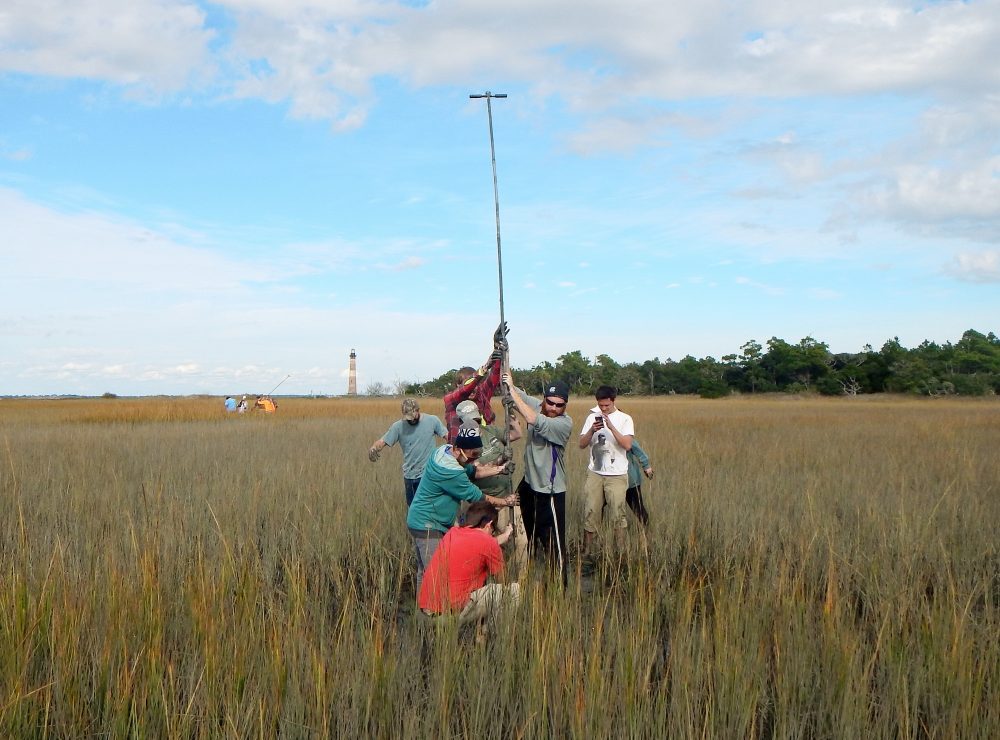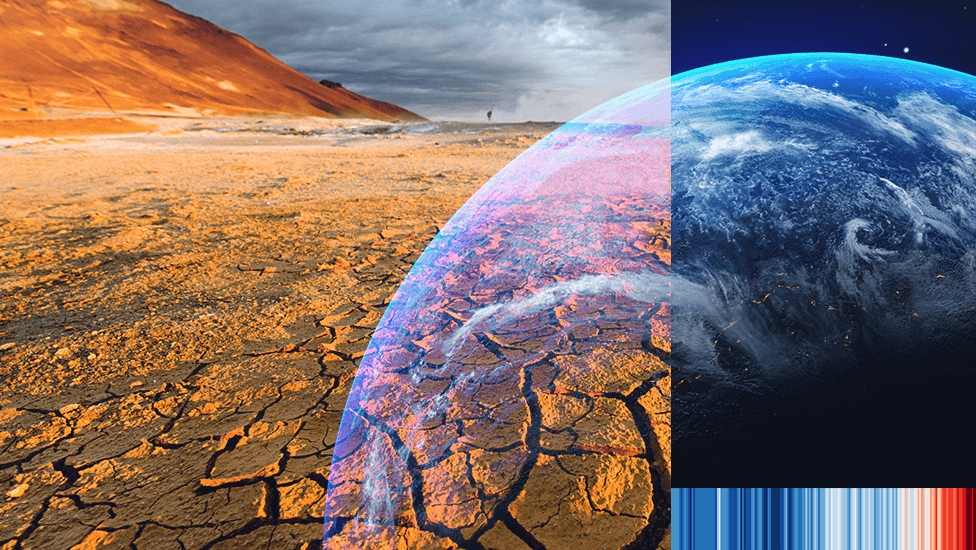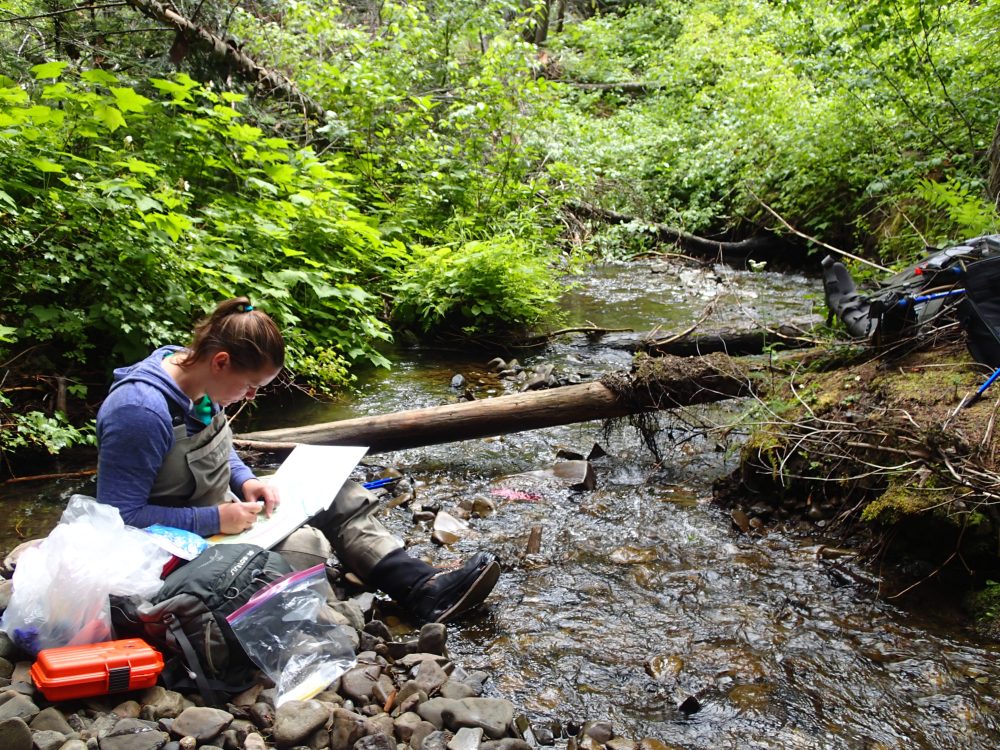Earth and Environmental Sciences

Do you have a love for the environment? Do you wonder how the world works? Are you interested in the impact humans are having on the planet? If so, a major in Earth and Environmental Sciences could be right for you!
A Major in Earth and Environmental Sciences leading to a B.S. degree consists of a minimum of 70 hours of required and elective coursework. The degree consists of required Earth Science (ESCI), Geography (GEOG), and Geology (GEOL) courses. The flexibility of the major allows students to specialize in air, water, or land-based science topics using their elective credits.
What is Earth & Environmental Sciences?

Earth & Environmental Sciences provides an overview of how science affects our environment, focusing on interactions between the solid Earth, its water, its air, and its living organisms, and on dynamic, interdependent relationships between these four components.
Earth and environmental scientists also consider how these relationships produce environmental change at different timescales. To do this, they combine knowledge, models and methods drawn from geology, biology, physics and chemistry.
What skills will you have when you graduate?
The Earth & Environmental Sciences major provides graduates with a broad understanding of the physical, chemical and biological processes that operate in and on the planet and how direct and indirect methods are used to examine, quantify and understand the structure, composition, and dynamics of the Earth’s atmosphere, hydrosphere, biosphere and lithosphere. Graduates appreciate how humans and ecosystems interact with the dynamic Earth, and how human activities such as non-sustainable resource extraction have generated climate change, exacerbated natural hazards, and disrupted hydrologic and biogeochemical cycles.

What does an Environmental Scientist do?
Environmental scientists conduct research to identify, control, or eliminate sources of pollutants or hazards affecting the environment or public health.
Their research typically involves:
- Determining data collection methods
- Collecting and analyzing air, water, and soil samples
- Analyzing environmental data gathered by others
- Looking for correlations to human activity
- Preparing reports and presentations that explain their findings

Some environmental specialists focus on environmental issues while others focus on issues relating to human health. Either way, they work on critical issues, solving some of the most important problems of our day.
Environmental scientists also:
- Develop plans to prevent, control, or fix environmental problems like air pollution
- Advise government officials that make policy
- Help businesses follow regulations or improve their practices
- Conduct environmental inspections of businesses
- Assess the potential effects of development projects to prevent the creation of new problems
What jobs can you get with this degree?

- Environmental consultant
- State, local, and federal government agencies
- Conservation Officer
- Energy jobs
- Water or air quality scientist
- Environmental educator
- Environmental Geologist
- Ecologist
- Environmental Health and safety officer
- Climatologist

Interested in declaring an Earth & Environmental Sciences degree?
If you are interested in Earth and Environmental Sciences, please talk with the Earth and Environmental Sciences Undergraduate Coordinator Valerie Reynolds.
To declare this major, click here!
Use the UNC Charlotte online catalog to find additional information about this degree.
Below is a downloadable check sheet for the Earth and Environmental Sciences degree.
Additionally, this link will take you to courses that are traditionally offered every fall and spring semester.
Students should consult the Department of Earth, Environmental and Geographical Sciences for suggested schedules to complete the B.S. degree with a Major in Earth and Environmental Sciences.